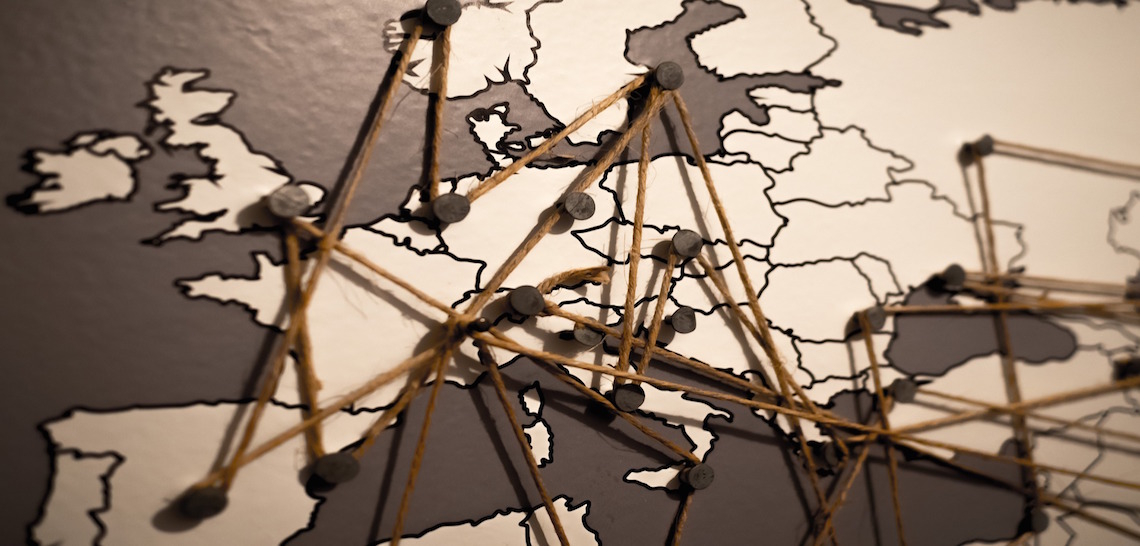Amid the past Polish-Baltic historical ties and accession into the EU, civilians of Polish descent make up significant numbers in Western and Eastern Europe, and play very active role in local societies.
In Eastern Europe, most notably, Valdis Dombrovskis is a prominent Latvian and European politician of Polish descent, as well as the country’s former Prime Minister.
Since the collapse of Soviet Bloc in 1989, accession into the EU (2004) and the Schengen Zone (2007), industrialized states in Europe experience rapid growth the Polish-speaking communities, along with other Eastern Europeans, who migrate for better-paid jobs and higher standards of living.
In Britain, Polish citizens make up approximately a million of people and play very active role in labour market of construction and manufacturing job sectors, as well as entrepreneurship. Increasing numbers are getting employed in financial, real estate, professional and administrative activities. The British NHS (National Health Service) and pharmaceutical industries also demand more doctors and nurses among Polish and other Eastern European medical specialists [1].
Polish-speaking minority adds up large contribution to the British GDP by demonstrating hard work ethic and willingness to adapt into new working environment. Despite of British choice to withdraw from the EU and its consequences of increasing xenophobic attacks on foreigners, British citizens still prefer hard-working and more adaptable migrants coming from Poland and other Eastern European nations. Some researchers suggest that significant number of Polish immigrants prefer to socially integrate and adopt British identity [2]. Despite that upcoming BREXIT would limit migration from the EU, due to large contribution into British economy, a significant number of Polish migrants and their descendants will likely stay in the UK and play an active role of rapidly changing face of multicultural British society.
Despite of distance and novelty, Polish minority is the largest immigrant group in Iceland (approximately 10,540 people). Pawel Bartoszek, a young and prominent Icelandic columnist and scholar in mathematics, was elected in October 2016, as the country’s first Polish-speaking deputy [3]. Finally, the official website of the President of Iceland uses Polish language for publications and communications [4].
Polish minorities are also present in other states, such as the Republic of Ireland, Norway, Netherlands and Sweden, where Poles are also positively perceived due to hard work ethic and large contributions into local economies, by demonstrating high rate of entrepreneurship.
Polish Diaspora in Europe | By Konstantin K. Manyakin, CPCC Intern
European Studies Graduate (EURUS Program), Carleton University & Young European Federalists (JEF) member
REFERENCES
[1] Cain, K. (2017), “Number of European nurses registering to work in Britain falls by 90 PER CENT as workers shun NHS following Brexit vote”. The Sun, 28 January. Retrieved from: https://www.thesun.co.uk/news/2729141/nhs-number-of-european-nurses-registering-to-work-in-britain-falls-by-90-per-cent-as-workers-shun-nhs-following-brexit-vote/
[2] Manyakin, K (2015) Multiculturalism in Western Europe: From Implementation to Failure. MA Thesis (Page 136). Carleton University. Available at: https://curve.carleton.ca/6b7d2693-e254-4a1a-aba3-d9baef8f3b5e
[3] Althingi (Parliament of Iceland), “Pawel Bartoszec”. Available at: http://www.althingi.is/altext/cv/en/?nfaerslunr=199
[4] PREZYDENT ISLANDII (President of Iceland). Available at: http://www.forseti.is/pl

Recent Comments